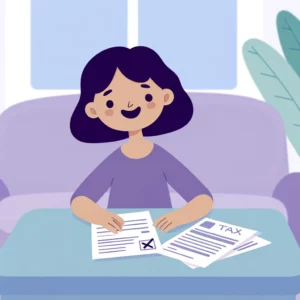If you’re unsure whether you need to file a self-assessment tax return for the tax year 2023-24, it’s important to understand your tax obligations. Many individuals and business partners find themselves in situations where filing a self-assessment tax return is necessary. This guide aims to clarify who needs to submit a self-assessment tax return to HM Revenue and Customs (HMRC) and ensures you can meet your requirements effectively.
What is a Self-Assessment?
A self-assessment is a personal tax return, part of the system used by HMRC to collect income tax. Individuals report their income and capital gains, as well as claim tax allowances or reliefs on their own. It’s called ‘self-assessment’ because you are responsible for completing the return yourself and ensuring you pay the correct amount of tax. This system is primarily used by those who do not have taxes automatically deducted from their income, such as the self-employed, or those with multiple sources of income.
Who Needs to Complete a Self-Assessment Tax Return?
Self-assessment tax returns are necessary for various individuals under specific circumstances. Here’s who needs to file for the 2023-24 tax year:

- Self-Employed Individuals: If you’re a sole trader with earnings above £1,000 before expenses, you must file a tax return.
- Partners in a Business Partnership: Any partner in a business partnership must file a return to declare their share of the profits.
- Income from Savings, Investments, or Dividends: Significant amounts of income in this category, particularly for higher or additional rate taxpayers, might necessitate a tax return.
- Claims for Income Tax Reliefs: If you need to claim tax reliefs, you might have to file a return.
- High Income with Child Benefit: Individuals earning over £50,000 who receive Child Benefit are likely to need to complete a tax return due to the High Income Child Benefit Charge.
- Overseas Financial Interests: Anyone with foreign income that hasn’t been taxed may need to file a tax return.
- Capital Gains Tax Liabilities: This includes any profits made from selling assets like property or shares.
- Company Directors: Directors of companies, unless it’s a non-profit organisation that doesn’t compensate you, generally need to submit a tax return.
Why File a Self-Assessment Tax Return?
Filing is crucial not just to comply with legal requirements, but also to ensure you pay the right amount of tax. Not filing when required can lead to penalties and interest charges. Sometimes, filing a return could result in a tax refund if you’ve overpaid throughout the year.
How to File Your Self-Assessment Tax Return
Here’s how to file your tax return:
- Register for Self-Assessment: New filers need to register with HMRC by the 5th of October following the tax year end.
- Gather Your Documents: Collect all necessary documentation including records of all income and allowable expenses.
- Complete Your Return: You can complete your return online or on paper. The online method is faster and provides immediate confirmation from HMRC.
- Pay Your Tax: Be aware of how much tax you owe and make sure to pay by the deadline, 31st January following the end of the tax year.
Where to Get Help
If your tax situation is complex or if you’re unsure how to file your return, consider seeking professional advice. At ESDG Accountancy, we offer guidance and services to help individuals and businesses manage their tax affairs efficiently. For more information or to get help directly, you can visit our services page.
For those who are uncertain about whether they need to file a self-assessment tax return, HMRC provides a helpful online checker. This tool can guide you through a series of questions to determine if you need to complete a tax return for the tax year.
Conclusion
Determining if you need to complete a self-assessment tax return for 2023-24 is key to maintaining compliance with HMRC. By understanding the criteria and preparing adequately, you can navigate this process smoothly. Always consult a professional if you are unsure about your specific tax obligations.

